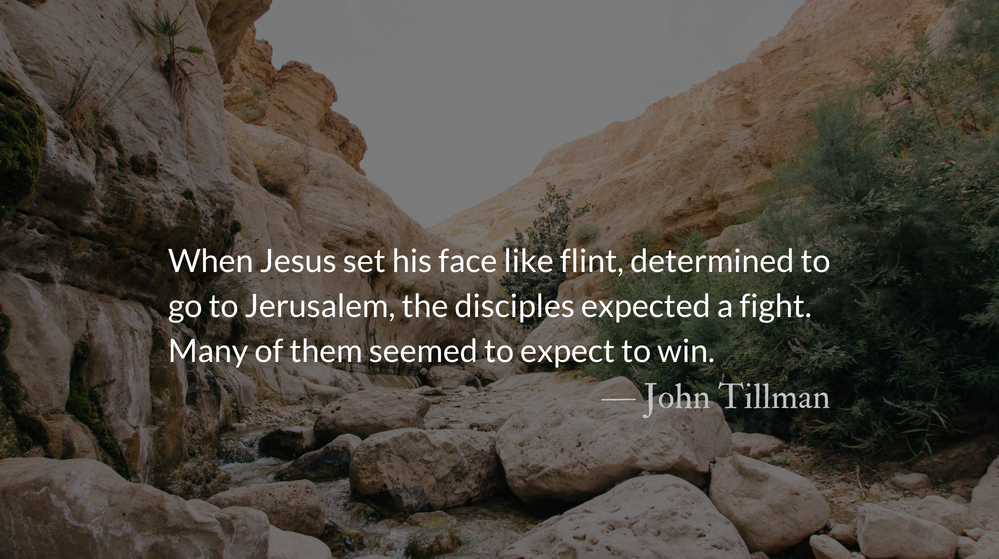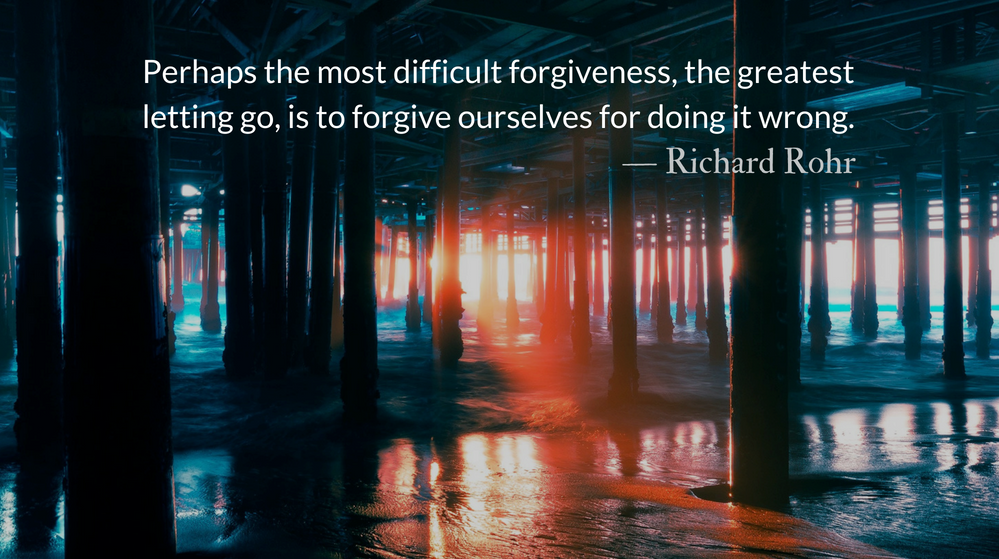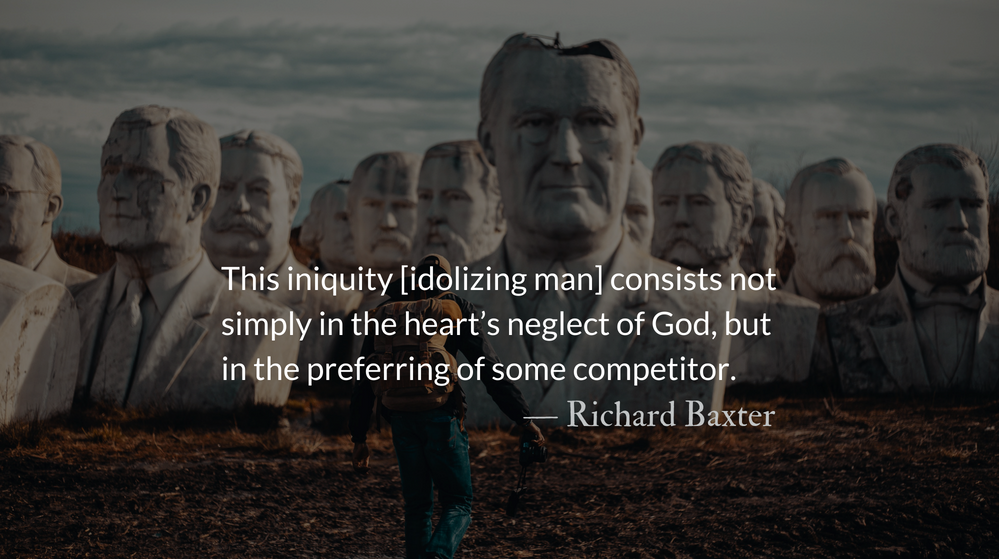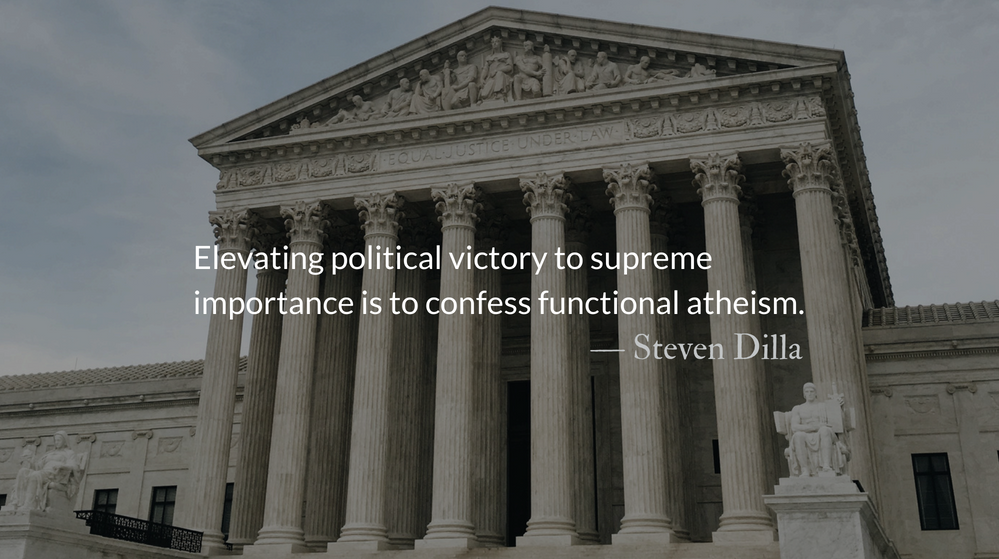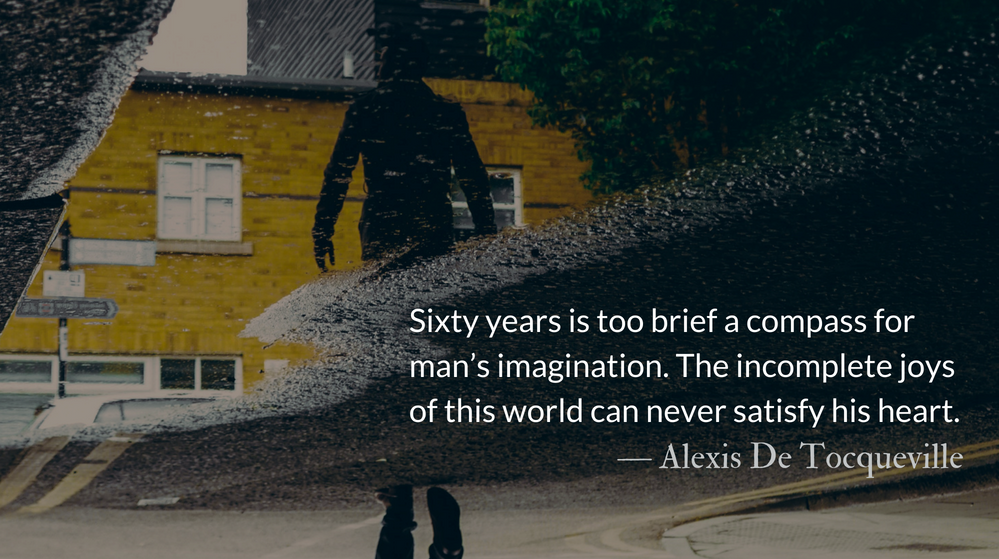Scripture: Isaiah 50.7
Therefore have I set my face like flint,
and I know I will not be put to shame.
Reflection: Face Like Flint :: A Guided Prayer
By John Tillman
Jesus is the word who sustains us through suffering.
The Sovereign Lord has given me a well-instructed tongue,
to know the word that sustains the weary.
Reflect on Jesus as the word of God—the word we must speak to the world.
He wakens me morning by morning,
wakens my ear to listen like one being instructed.
Too often our prayers are dictating a list to God rather then taking down what he would dictate to us… Ask the Holy Spirit to waken your ears to listen.
The Sovereign Lord has opened my ears;
I have not been rebellious,
I have not turned away.
How often does inner rebellion cause us to turn away from the suffering Christ calls us to?
Therefore have I set my face like flint,
and I know I will not be put to shame.
When Jesus set his face like flint, determined to go to Jerusalem, the disciples expected a fight. Many of them seemed to expect to win.
James and John asked, “Lord, do you want us to call fire down from heaven to destroy them?” Peter rebuked Christ’s prediction of death, saying, “This shall never happen.” They also cried in the garden, “Shall we strike with our swords?”
In what ways are we willing to accept victory with Christ but not suffering?
Where do we reach for our swords, when Christ calls out, “No more of this!”…and heals the one we would attack? Are we willing to heal our enemies?
I offered my back to those who beat me,
my cheeks to those who pulled out my beard;
I did not hide my face
from mocking and spitting…
…Therefore have I set my face like flint,
and I know I will not be put to shame.
Christ’s pulled out beard, his spit-upon face, his nakedness, and every other manner of his death was culturally shameful. Yet it was our shame he bore, not his own. Are we willing to be shamed with him?
Thomas recognized going to Jerusalem was a death sentence. “Let us also go, that we may die with him.” Are we willing to die with him?
May we, like Christ and like Thomas, set our face like flint in anticipation of suffering. May we listen, follow, and speak, and, if not for God’s intervention, suffer or die with Christ.
Prayer: The Call to Prayer
Worship the Lord in the beauty of holiness; let the whole earth tremble before him. — Psalm 96.9
– Prayer from The Divine Hours: Prayers for Springtime by Phyllis Tickle.
Full prayer available online and in print.
Today’s Readings
Isaiah 50 (Listen – 2:09)
Revelation 20 (Listen – 2:49)
Additional Reading
Read More about The Crucible of Suffering
Unfortunately, many Christians run from suffering, instead of facing it head-on.
Read More about Suffering for Our True Identity
If we suffer for doing good, at least we are showing the world our true identity.

